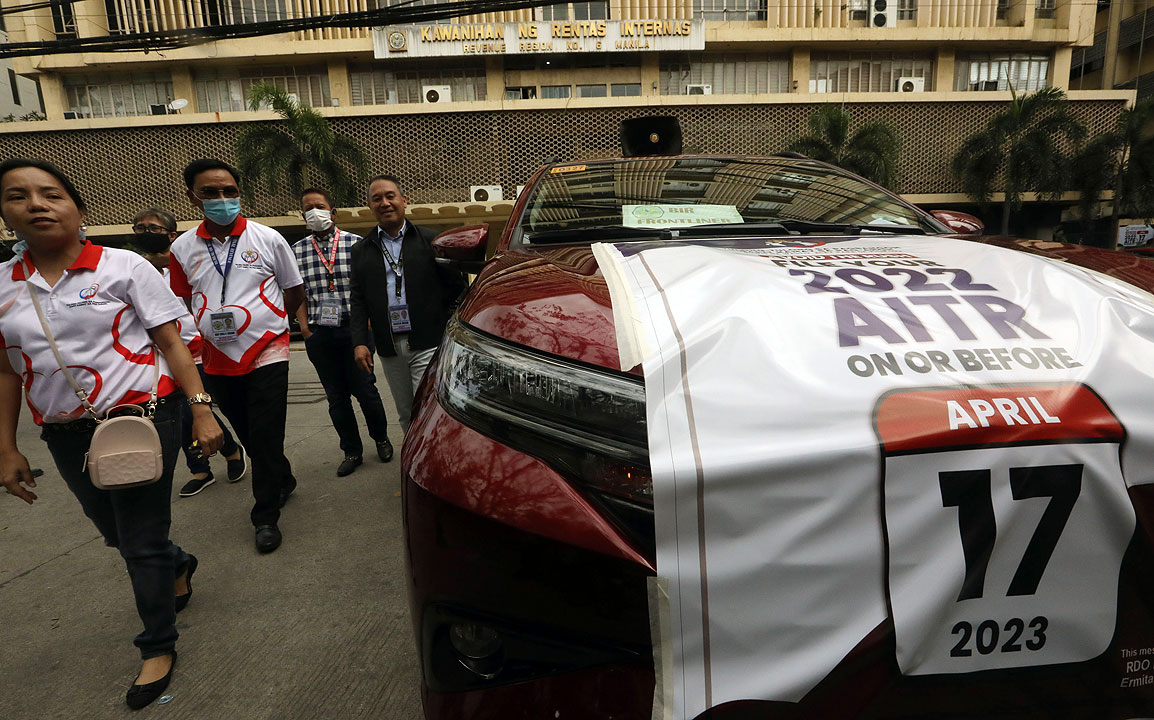BIR says personal income tax cuts to help boost consumer spending

THE Bureau of Internal Revenue (BIR) said it expects any revenue losses from the personal income tax cuts this year to be offset by an expected increase in consumer spending.
BIR Commissioner Romeo B. Lumagui said the personal income tax cuts would translate to higher disposable income for the majority of taxpayers.
“(Taxpayers) will effectively have higher take-home pay, and hopefully they will be spending, so consumption tax (will be higher),” he told reporters last week.
Under the Tax Reform for Acceleration and Inclusion (TRAIN) law, further reductions in the personal income tax rates took effect on Jan. 1.
Taxpayers with annual taxable income above P250,000 but not over P400,000 now have a personal income tax rate of 15%, from 20% previously.
The tax rate for those earning above P400,000 but not over P800,000 has been reduced to 20% from 25% previously, while the tax rate for those earning above P800,000 but not over P2 million has been cut to 25% from 30%.
Taxpayers who earn more than P2 million but not above P8 million are subject to an income tax rate of 30% from 32%, previously.
However, the tax rate for individuals earning P8 million and above will be kept at 35%.
Those with income below P250,000 are still exempt from paying personal income tax.
The BIR is targeting to collect a total of P2.6 trillion this year. This is 11% higher than the P2.34 trillion it collected in 2022.
Mr. Lumagui also noted that the government can generate additional revenues by cracking down on illicit trade and tax evasion.
The BIR collects about 70% of government revenues.
Union Bank of the Philippines, Inc. Chief Economist Ruben Carlo O. Asuncion said in a Viber message that the personal income tax adjustments will lead to additional consumption and demand creation because of higher disposable income.
“The revenue loss in personal income tax this year is presumably incorporated already in the Department of Finance’s (DoF) revenue projections. Likely, this will be offset by higher collections due to continuous economic growth and improvements in tax administration,” China Banking Corp. Chief Economist Domini S. Velasquez said in a Viber message.
The government expects the economy to grow 6-7% this year, slower than the 7.6% gross domestic product (GDP) expansion in 2022.
Household consumption is one of the biggest contributors to Philippine GDP. In 2022, household consumption rose by 8.3% year on year from 4.2%.
However, Mr. Asuncion warned that rising inflation could impact the purchasing power of consumers.
Headline inflation in the Philippines eased to 8.6% in February from the 14-year high of 8.7% in January. This marked the 11th consecutive month inflation was above the central bank’s 2-4% target.
The Bangko Sentral ng Pilipinas expects inflation to average 6.1% this year.
“We think that although revenues have improved substantially since the pandemic, due to higher-than-expected GDP, this momentum will decline as economic growth moderates,” Ms. Velasquez added.
Ms. Velasquez said there may still be a need to impose other taxes to generate revenues.
“Some form of wealth tax, sin taxes, taxes on activities with negative externalities, can be a good way to supplement revenues in the medium term,” she added.
A luxury tax measure is currently pending in the House Committee on Ways and Means. It seeks to tax “non-essentials” like jewelry, luxury bags, watches, cars, private jets, and residential property.
Lawmakers have also filed a bill that would tax the “super-rich” or individuals with net value assets exceeding P1 billion. It is also still pending at the House Committee on Ways and Means.
A carbon tax is also currently being studied by the DoF. It aims to encourage businesses that emit carbon dioxide to shift to more sustainable operations. — Luisa Maria Jacinta C. Jocson



